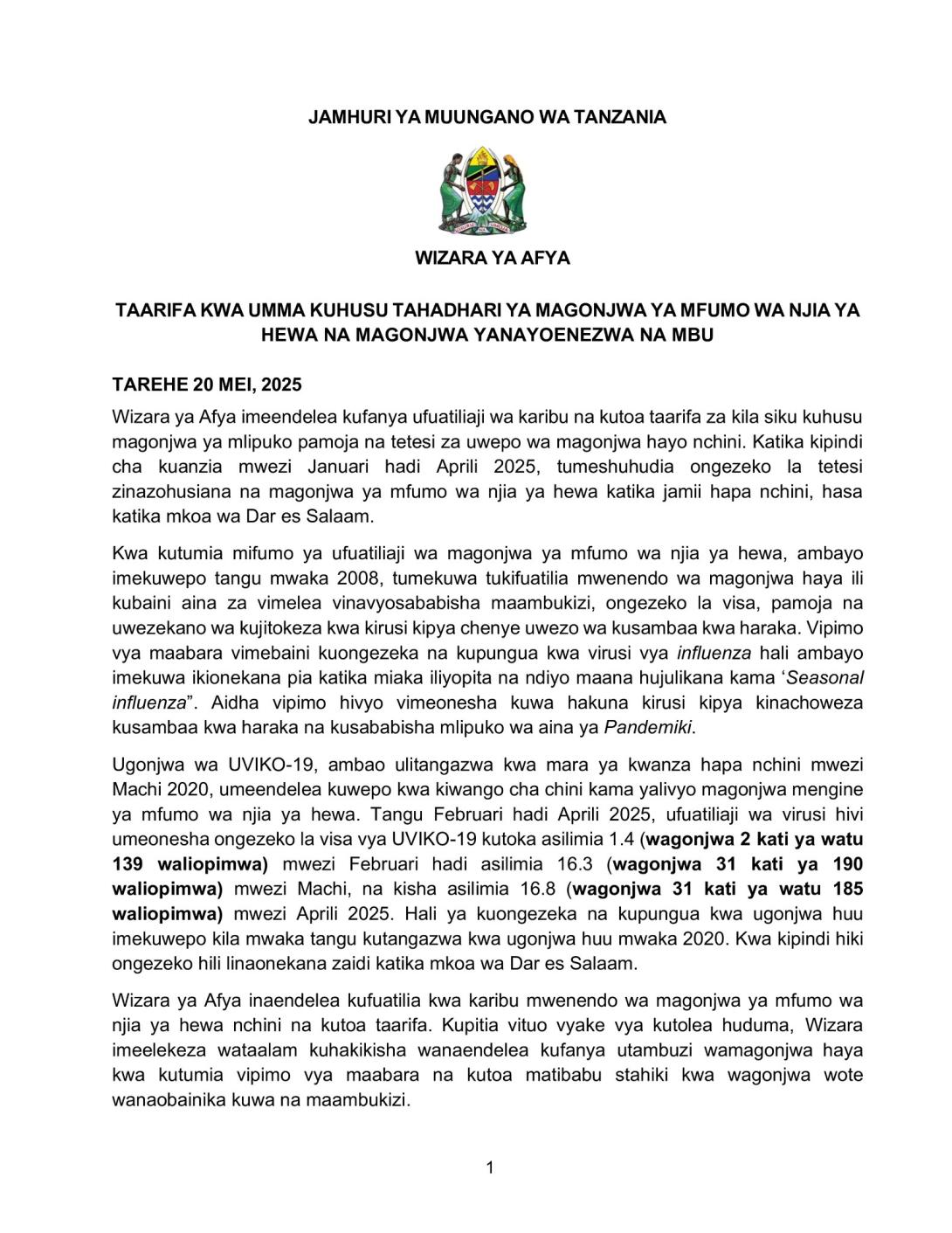The World Health Organization has warned a major chikungunya virus epidemic risks sweeping around the globe, calling for urgent action to prevent it. The WHO said it was picking up exactly the same early warning signs as in a major outbreak two decades ago and wanted to prevent a repeat.
Chikungunya is a mosquito-borne viral disease that causes fever and severe joint pain, which is often debilitating. In some cases it can be deadly.
"Chikungunya is not a disease that is widely known, but it has been detected and transmitted in 119 countries globally, putting 5.6 billion people at risk," said the WHO's Diana Rojas Alvarez.
She recalled how from 2004 to 2005, a major chikungunya epidemic swept across the Indian Ocean, hitting small island territories before spreading globally and affecting almost half a million people.
"Today, WHO is seeing the same pattern emerge: since the beginning of 2025, Reunion, Mayotte, and Mauritius have all reported major chikungunya outbreaks. One-third of the population of Reunion is estimated to have been infected already," she told a press briefing in Geneva.
The symptoms of chikungunya are similar to those of dengue fever and Zika virus disease, making it difficult to diagnose, according to the WHO.
Rojas Alvarez said that like 20 years ago, the virus was now spreading to other places in the region, such as Madagascar, Somalia and Kenya.
"Epidemic transmission is also occurring in south Asia," she added.
In Europe, imported cases have also been reported, linked with the outbreak in the Indian Ocean islands. Local transmission has been reported in France, and suspected cases detected in Italy.
"Because these patterns of transmission were seen in the outbreak from 2004 onwards, WHO is calling for urgent action to prevent history from repeating itself," said Rojas Alvarez.
She noted that the case fatality rate was less than one percent, "but when you start counting millions of cases, that one percent can be thousands" of deaths.
"We are raising the alarm early so countries can prepare early, detect and strengthen all the capacities to avoid going through very large outbreaks."
Rojas Alvarez explained that in regions where populations have little or no immunity, the virus can quickly cause significant epidemics, affecting up to three-quarters of the population.
Chikungunya virus is transmitted to humans by the bites of infected female mosquitoes, most commonly Aedes aegypti and Aedes albopictus mosquitoes.
The latter, which is known as the tiger mosquito, is venturing farther north as the world warms because of human-driven climate change.
They bite primarily during daylight hours, with peak activity often in the early morning and late afternoon.
The WHO urged people to protect themselves through measures like using mosquito repellent and not leaving water to stagnate in containers such as buckets, where mosquitoes can breed.
Read more:
Chikungunya Fact Sheet

